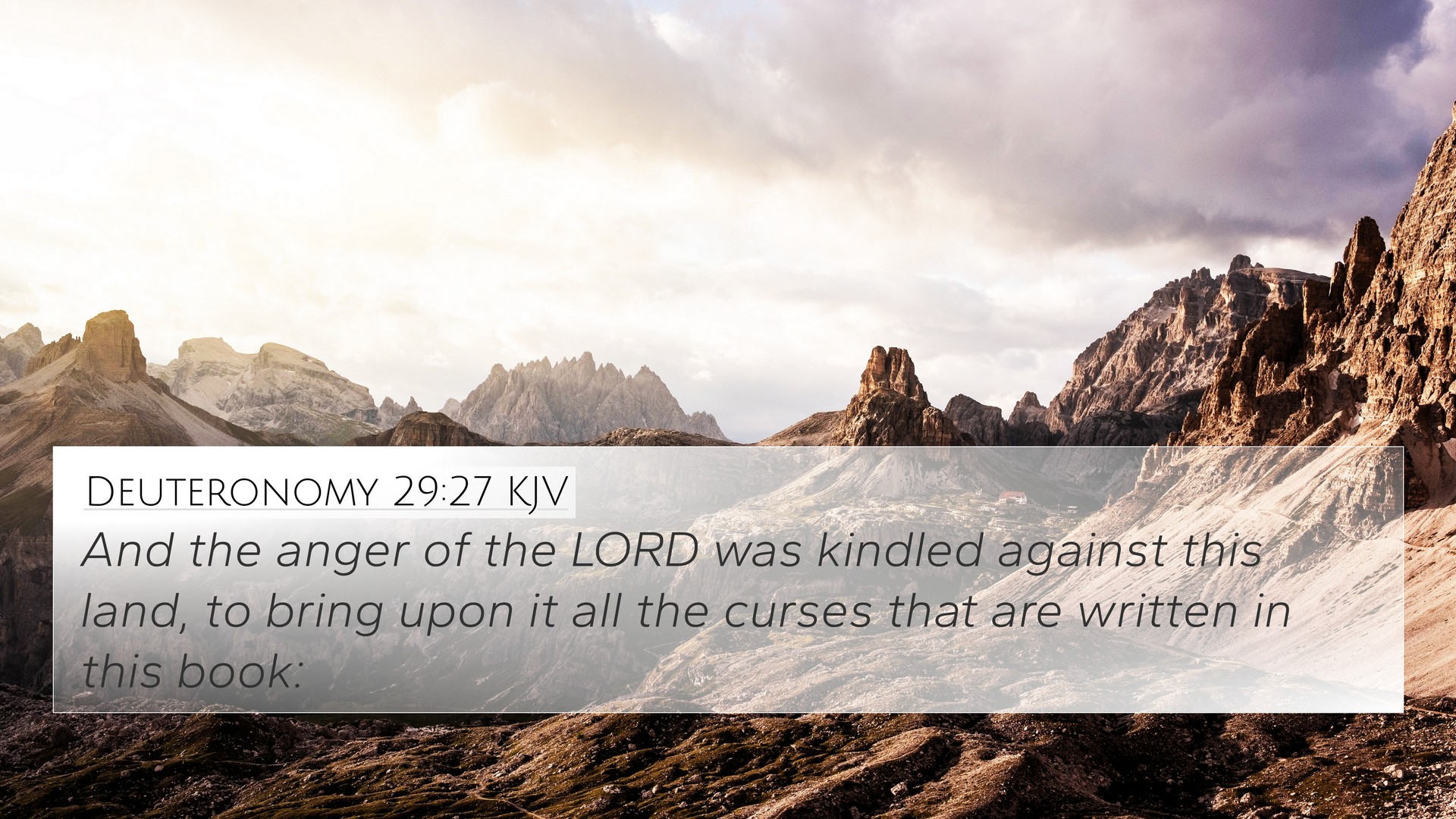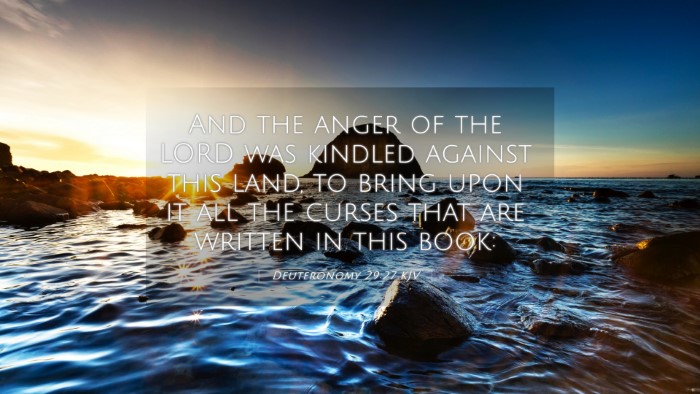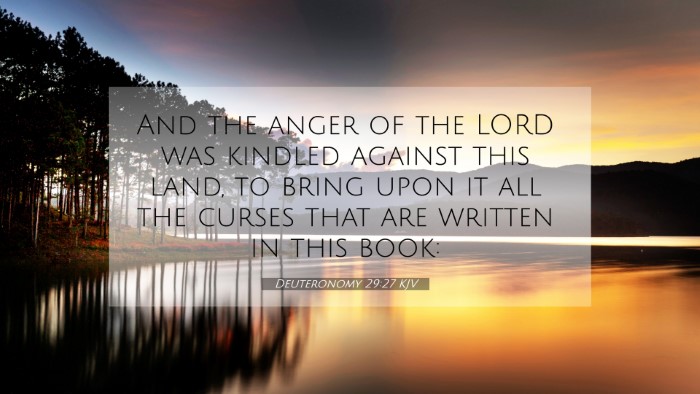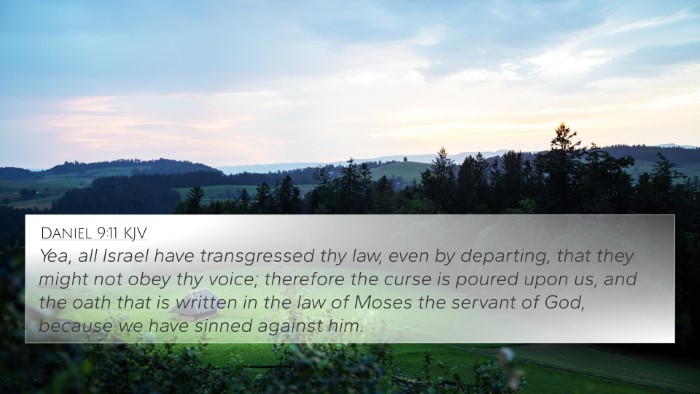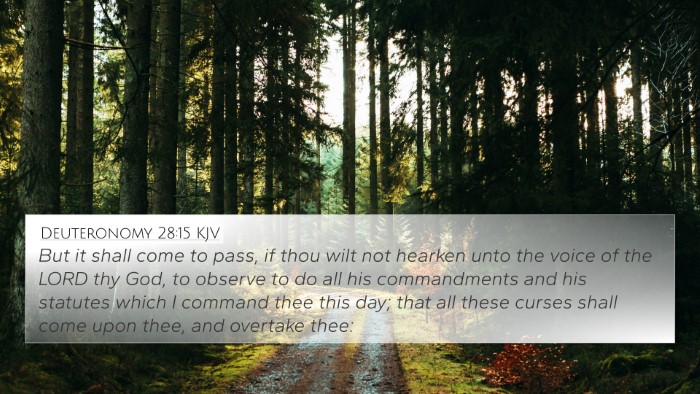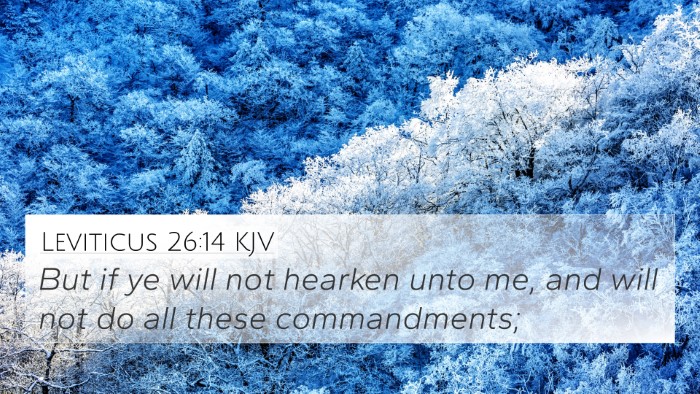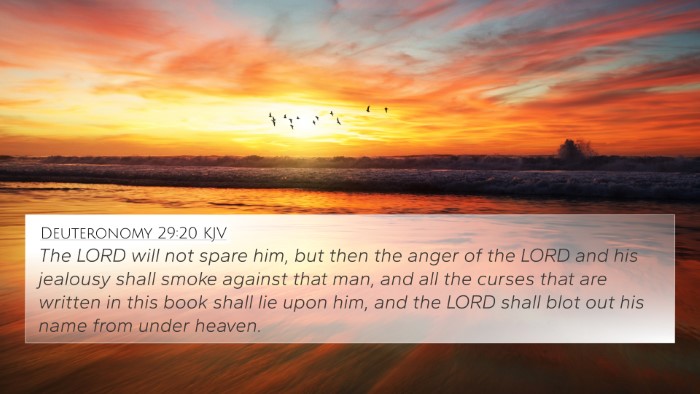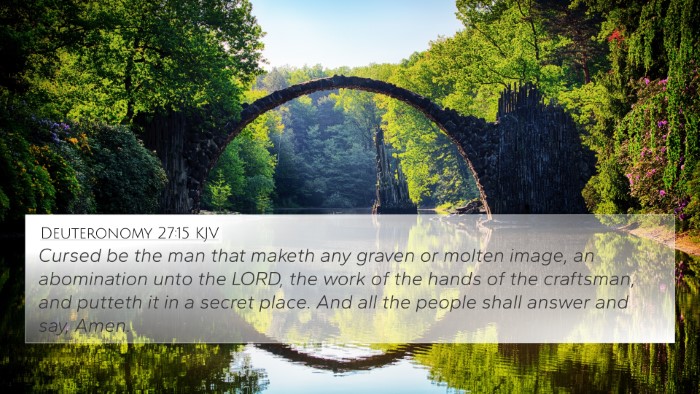Understanding Deuteronomy 29:27
Verse Reference: Deuteronomy 29:27
“And the anger of the Lord was kindled against this land, to bring upon it all the curses that are written in this book:”
Meaning and Interpretation
This verse serves as a critical point in the narrative of the covenant between God and Israel. It highlights the seriousness of disobedience and serves as a warning about the consequences that can arise from breaking the covenant. Drawing from Matthew Henry, Albert Barnes, and Adam Clarke, we find several key insights:
-
Divine Anger:
The text emphasizes that God's wrath is not arbitrary but is directly a response to the actions of the people. It reflects God's holiness and justice in dealing with sin and rebellion.
-
Curses of the Covenant:
Henry notes that this verse references the curses laid out in the earlier sections of Deuteronomy (especially chapters 27 and 28). These curses serve as a solemn reminder of the gravity of divine judgment against unfaithfulness.
-
Consequences of Rebellion:
Barnes points out that the consequences are not just limited to physical repercussions but extend to spiritual estrangement from God. This serves as a thematic connection to the broader narrative of Israel's covenant relationship.
-
Historical Context:
Clarke provides historical context, explaining that this warning is particularly relevant as the Israelites are poised to enter the Promised Land, signifying a new phase in their relationship with God, contingent upon their obedience.
-
God’s Sovereignty:
All three commentators highlight that God's sovereignty governs all nations. The anger of the Lord emphasizes that He has power over the land and its inhabitants, reinforcing the idea that divine authority dictates the fate of the people.
Cross References to Deuteronomy 29:27
To fully grasp the implications of Deuteronomy 29:27, it is vital to explore related scriptures. Here are some pertinent cross-references:
- Deuteronomy 28:15: Discusses the curses that come with disobedience, laying a foundation for understanding the current verse.
- Genesis 3:17-19: The original curses pronounced for Adam's disobedience provide a backdrop for understanding the nature of God’s judgment.
- 2 Chronicles 7:19-22: Addresses the responses of God to the people turning away from Him.
- Isaiah 54:8: Presents a picture of God's anger but also showcases His eventual mercy and restoration.
- Romans 1:18: Illustrates the concept of divine wrath against ungodliness, applicable in both Old and New Testaments.
- Galatians 3:10: Talks about the curses that come from not upholding the law, echoing the themes found in Deuteronomy.
- Revelation 22:18-19: Highlights the seriousness of God's words and the consequences of altering them, paralleling the seriousness of the covenant.
- Hebrews 10:26-27: Warns of the penalties for willfully sinning after receiving knowledge of the truth.
Thematic Connections in Scripture
Deuteronomy 29:27 is a profound verse that acts as a bridge to various themes throughout scripture, emphasizing the importance of obedience, accountability, and divine justice. This verse finds thematic echoes in:
- Covenant Faithfulness: The narrative of Israel’s reliance upon God and the consequences they face when straying from His laws.
- Judgment and Mercy: The balance of God's judgment against sin with His offer of mercy and restoration.
- Collective Responsibility: The idea that nations and communities share responsibility before God, especially as seen in the history of Israel.
- Divine Sovereignty: God's control over not just individual lives but the fate of entire nations, as evidenced throughout both Testaments.
How to Use Cross-References for Deeper Study
To truly understand the implications of Deuteronomy 29:27, the following methods for cross-referencing can be utilized:
-
Bible Concordance:
Utilize a Bible concordance to locate keywords and themes related to disobedience and divine wrath.
-
Cross-Reference Bible Study:
Engage in cross-reference bible study by looking for parallels within both the Old and New Testaments.
-
Exploratory Themes:
Identify how Old Testament warnings resonate in the teachings of Jesus and the Apostles.
-
Inter-Biblical Dialogue:
Analyze how themes from Deuteronomy inform and dialogue with New Testament concepts of grace and law.
Conclusion
Deuteronomy 29:27 serves as a solemn reminder of the covenant relationship between God and His people, emphasizing the dire consequences of rebellion. Through careful analysis and cross-referencing with other scriptures, believers are urged to reflect on their own faithfulness and relationship with God. The interconnectedness of scripture further highlights the importance of obedience and the nature of divine judgment across the biblical narrative.
